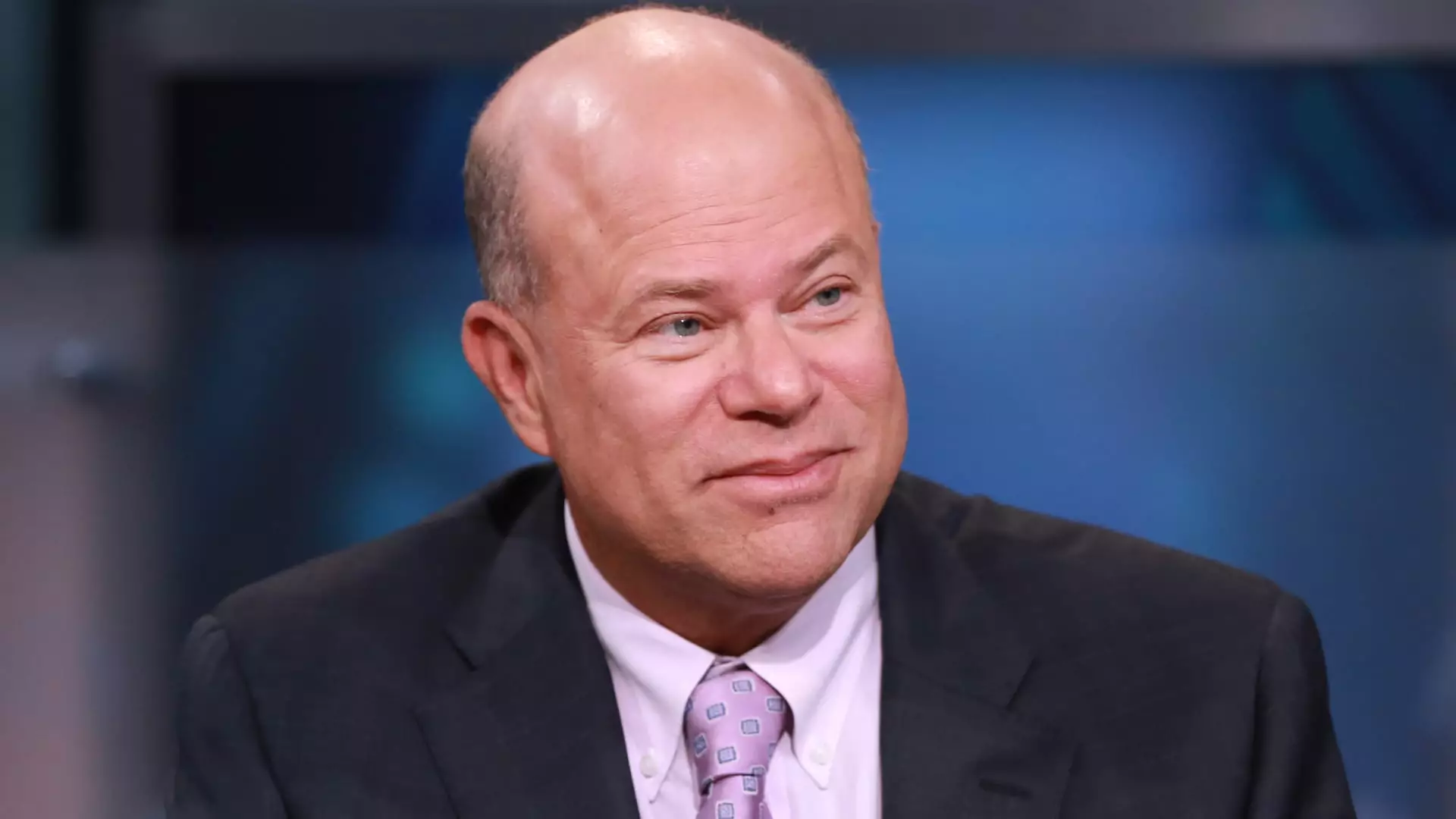David Tepper, the founder of Appaloosa Management, has recently made headlines with his observations regarding the Federal Reserve’s strategies in managing the economy. In a recent interview on CNBC’s “Squawk Box,” Tepper emphasized the importance of taking the Federal Reserve’s words seriously, particularly in light of its recent policy shifts. Tepper argued that with the Fed’s heightened need for credibility, investors should expect them to follow through on their commitments to lower interest rates. This perspective leads to an essential conversation about the Fed’s influence on market stability and investor behaviors.
The Federal Reserve has executed a significant move in the current economic landscape. By cutting the benchmark interest rates by half a percentage point, it marked the commencement of its easing drive after a four-year hiatus. Interest rate adjustments are among the most potent tools in the Fed’s arsenal, and this latest decision has sparked renewed discussions about the implications for the broader economy. Tepper highlighted that the Fed, under the leadership of Chairman Jerome Powell, indicated the possibility of further cuts by the year’s end. This kind of proactive approach suggests that the central bank is keenly aware of the delicate balance it must maintain between stimulating growth and preserving its credibility.
Concerns Amidst Easing Policies
However, Tepper expressed a level of unease regarding the broader implications of this quantitative easing. Drawing comparisons to the economic landscape of the 1990s, he pointed out the potential perils of cutting rates in an economy that seems fairly stable. Historically, aggressive rate cuts can lead to market distortions or “bubble” conditions, as evidenced in the late 1990s when the Fed’s accommodative stance contributed to significant market overvaluation. His caution reflects a growing concern among investors about where the economy might be headed and whether these policies could inadvertently lead to volatility.
Tepper also noted that while the gross domestic product (GDP) has seen steady growth—forecasting approximately 3% for the third quarter according to the Atlanta Fed—indicators of inflation continue to run ahead of the Fed’s coveted 2% target. This discrepancy raises essential questions about the inflationary pressures that may arise from such monetary expansion. Nonetheless, rising inflation is coupled with a deceleration in the labor market, a factor that played into the central bank’s decision to cut rates, indicating a complex economic dynamic at play.
Investment Strategies in Uncertain Times
Despite his reservations about the current positioning of U.S. markets, Tepper made it clear that he is not inclined to bet against American equities. He readily acknowledged the immediate benefits that come with an easy monetary policy, which can often buoy market sentiment even when foundational value appears shaky. This presents a unique dichotomy: while Tepper identifies himself as a “value guy,” he understands the dangers of being overly cautious in an environment where liquidity is abundant and speculative behavior can proliferate.
In his analysis, Tepper also shared insights on his strategic choices moving forward. Notably, he articulated a strong interest in international markets, especially in Asian economies, citing a mixture of recent rate cuts and government support measures designed to revitalize struggling economies. His pivot toward foreign equities underscores a growing trend among savvy investors who are seeking opportunities beyond U.S. borders, especially amid shifting monetary policies that influence global market dynamics.
David Tepper’s perspective on the Federal Reserve’s actions provides a nuanced view of the current economic climate. While he acknowledges the potential benefits of rate cuts, he also casts a critical eye on the broader implications such policies may hold for market stability. His emphasis on credibility and the need for the Federal Reserve to remain consistent in its commitments speaks to the importance of transparency in monetary policy.
Moreover, Tepper’s strategic shift towards international investments and his cautious stance on U.S. equities illustrate a shifting landscape in investment trends. As economists and investors grapple with the implications of the Fed’s policies, it remains clear that the intersection of monetary policy and economic indicators will continue to shape the future of investment strategies across the globe.

